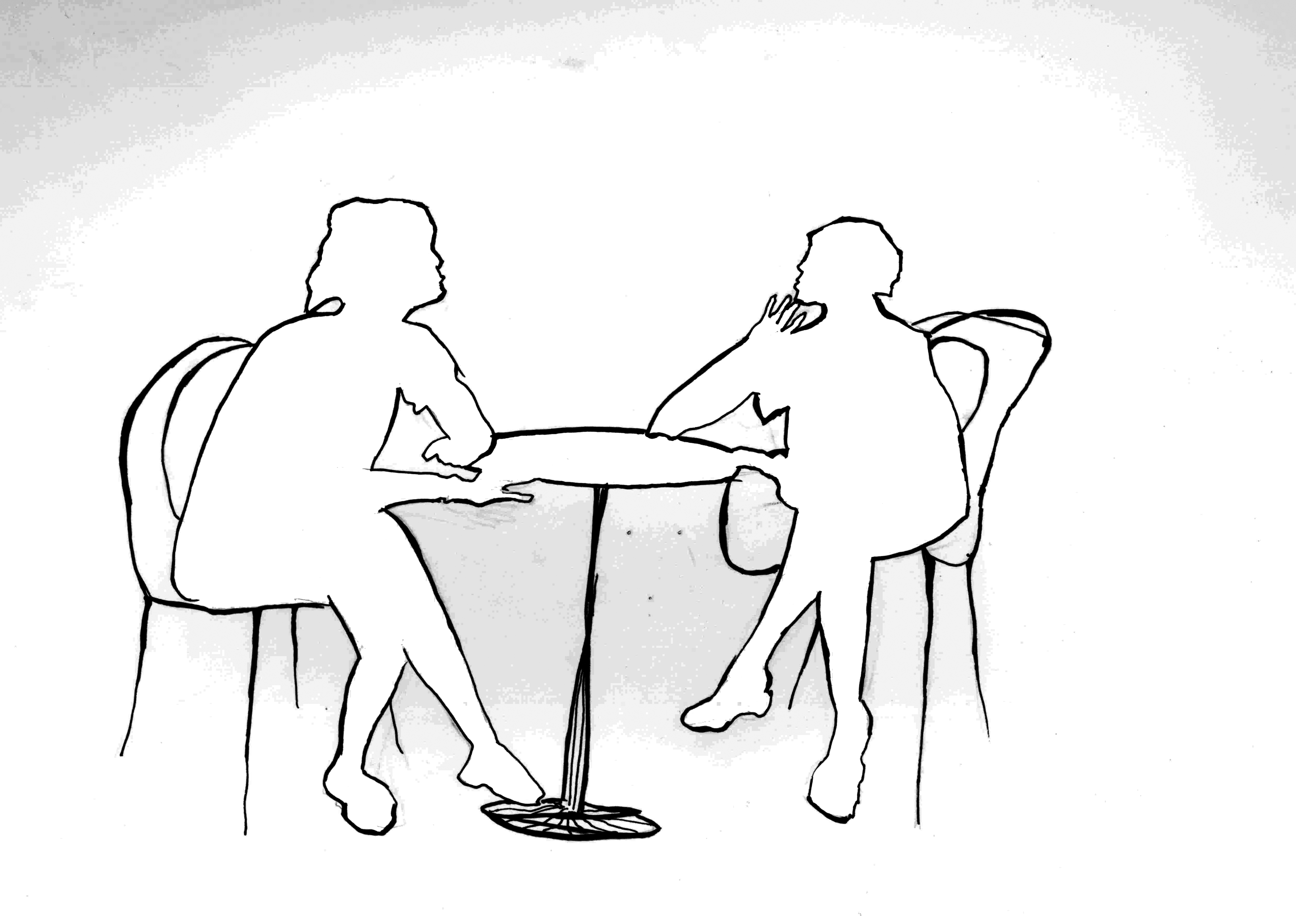
In my freshman year suite, I had a bay window with a built in seat that faced the Silliman courtyard. Because it was so nice to open the windows and we attempted to produce drinkable vodka sodas with freshman-year-quality vodka, for at least the duration of Camp Yale, we were able to establish ourselves as “the girls’ party suite” — a designation that we lost almost as soon as classes began and “the boys’ party suite” achieved their hegemony. It was the period when hardly anyone knew anyone and the people who drifted through my suite knew each other through either FOOT, Harvest, high school, across the hall, Toads — or not at all.
Nobody had decided what they were majoring in, or which extracurriculars they would devote their time to, or what campus job they would have. People who would soon sequester themselves in disparate corners of Yale were joined together by my palatable vodka sodas and the courtyard breeze. A lot has changed since those early nights. For one, I’ve switched to gin and tonic. For another, the group of people who I grab drinks with on a regular basis has become increasingly homogenous. Honestly, I don’t think I’ve had a drink with anyone who frequented my suite from that week since. The people I see on a regular basis are homogenous in ways that make sense in the context of what friendship means — we share similar interests, have fun doing the same activities, live near each other in our off-campus apartments.
In this position last spring, I spoke with my former roommate Rebecca, a senior at the time, about “society” and whether or not I should “do” it. I came into the tap process deeply skeptical. I really loved, and still love, the friendships that I had spent three years discovering and establishing, and I didn’t want to take time away from them to give to people I perhaps had never seen. But homogeneity can become dangerous, less a unifying factor and more of a vacuum. Rebecca was not shy about leveling this sharp critique at my friend group, which at the time felt harsh, but in hindsight was necessary. And so she convinced me to buy in to the whole tangle of exclusivity and new friendships associated with society and accept my tap invitation.
Approximately half the senior class joins a senior society, so clearly there are many people who find themselves in similar situations at the end of junior year and conclude that society is the answer to their issues of, if not social dissatisfaction, at least social isolation. Because of last year’s initiative to create societies to meet demand, the society experience is one solution available to all. And in many ways it does solve the problem: I have made friends in pockets of Yale that I would never have known about otherwise and have learned about life experiences incredibly distant from mine. Still, the perceived need for society and the deep desire for the kind of social structure and intimacy that it provides speaks to some deeper lack in the ways that communities and those networks between them form on this campus.
Why does society work? It could be the exclusivity. It could be the serious commitment that’s required from those who choose to participate. It could be the chemistry that emerges when a somewhat random group of people is thrown together. It’s probably a combination of factors, but it would serve this community well to isolate some of the key ones, because I think that in an ideal Yale, people like me would not reach senior year with an overbearing sense of social homogeneity and the need to confront it in such a directed and structured fashion like society.
Scale is important. We need more forums that bring small groups of different minded Yalies together. This will only become more crucial as the size of each class grows and the possibility of meeting larger swaths of Yale becomes more difficult. We need to foster a culture of mingling and of openness to new social connections.
Time commitment is key. It takes time to seek out and find these out of the way social connections. By eliminating the student contribution, Yalies will be released from obligations that they do not elect to form.
It also requires deep trust and openness, qualities that are typically earned and not assumed. Still, if rather than seeking out the little flickers of self-recognition in the people with whom I ultimately became closest, I had gone through Yale assuming that people trusted me as a friend and wanted me to place my trust in them in turn, I may not have needed society to introduce me to them this year.
Caroline Sydney is a senior in Silliman College. Her column runs on alternate Tuesdays. Contact her at caroline.sydney@yale.edu .







